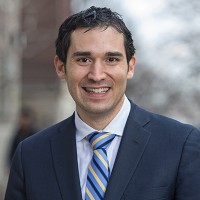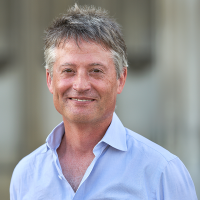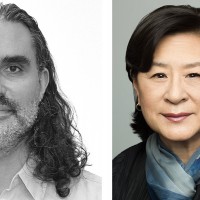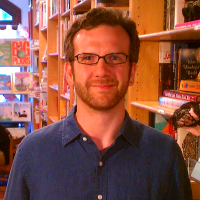Wednesday, October 16
With Professor Mae Ngai, Lung Family Professor of Asian American Studies and Professor of History, Department of History, and Professor Marcel Agüeros CC'96, Professor of Astronomy, Department of Astronomy and Astrophysics, and Founding Director, Bridge to the Ph.D. Program in STEM.
In this second presentation in a three-part conversation, Professor Mae Ngai will discuss ethnic studies. In 1996, Columbia students staged a hunger strike and occupied Hamilton Hall, demanding an ethnic studies department. The Center for the Study of Ethnicity and Race was established in 1999. Professor Agüeros in 1996 was a Columbia College senior and one of the hunger strikers leading the protests. Professors Ngai and Agüeros will explore the questions “Why ethnic studies? Why is CSER still not a full department? What’s the ongoing role of student activism?"
Read more on Mae M. Ngai
Ngai is Lung Family Professor of Asian American Studies and Professor of History. She is a U.S. legal and political historian interested in the histories of immigration, citizenship, nationalism, and the Chinese diaspora. She is author of the award winning Impossible Subjects: Illegal Aliens and the Making of Modern America (2004); The Lucky Ones: One Family and the Extraordinary Invention of Chinese America (2010); and The Chinese Question: The Gold Rushes and Global Politics (2021); and co-editor of Corky Lee’s Asian America: Fifty Year of Photographic Justice (2024). Ngai has written on immigration history and policy for the Washington Post, New York Times, Los Angeles Times, the Atlantic, the Nation, and Dissent. Before becoming a historian she was a labor-union organizer and educator in New York City, working for District 65-UAW and the Consortium for Worker Education. She is now writing Nation of Immigrants: A Short History of an Idea (under contract with Princeton University Press).
Read more on Marcel Agüeros
Agüeros is a professor in the Department of Astronomy. His research interest is in observational stellar astrophysics, and specifically in using new data sets and technologies to address classic questions in stellar evolution. He received his Ph.D. from the University of Washington in 2006, came to Columbia as a National Science Foundation (NSF) Astronomy & Astrophysics Post-doctoral Fellow that year, and joined the faculty in 2010.
Agüeros has worked on increasing the numbers of women and underrepresented minorities in the sciences since starting graduate school. At the University of Washington, he helped create the Pre-Major in Astronomy Program, through which first-year underrepresented students interested in astronomy are exposed to research, and which now has over 100 alumni. And he help launch and directed the Bridge to the Ph.D. Program for a decade. In 2008, the National Society of Black Physicists awarded Marcel a Certificate of Excellence in recognition of "distinguished personal initiative on diversity in astronomy."
Agüeros is a recipient of an NSF CAREER award and of the Presidential Early Career Award for Scientists and Engineers (PECASE), and he has won Columbia University's Lenfest Distinguished Faculty Award, its Presidential Teaching Award for Faculty, and its Faculty Service Award. In 2022-23, Agüeros was a U.S. Department of State Fulbright Scholar and was hosted by the Laboratoire d'astrophysique de Bordeaux, in France. Agüeros was selected as a Fellow of the American Astronomical Society in 2023. In 2024, he received the Robert Holland Jr. Award for Research Excellence and Contributions to Diversity, Equity and Inclusion from the Research Corporation for Science Advancement.






